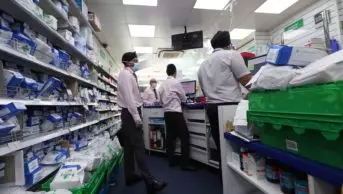
Royal Pharmaceutical Society
Pharmacists should be allowed to alter prescriptions without going back to the prescriber when medicines shortages hit, the Royal Pharmaceutical Society (RPS) has said in a letter to health secretary Matt Hancock.
The letter, sent on 11 September 2020, was jointly signed by the RPS and six other bodies including the Royal College of General Practitioners (RCGPs) and patient charity National Voices.
The bodies are, the letter says, “concerned about the impact that medicines shortages are having on patient care, noting that even minor amendments require pharmacists to contact prescribers or refer people back to prescribers”. This, they say, is “frustrating” for patients, pharmacists and prescribers, adding to workload and causing delays to treatment.
Whilst medicines under a serious shortage protocol (SSP) may be amended without such steps, the letter says that SSPs are rarely used and that a “more pragmatic approach is required”. Legislation should, the bodies say, be changed so that pharmacists can provide a different quantity, strength, formulation or generic version in the event that a particular medicine is out of stock.
It notes that their proposals do not extend to therapeutic substitution.
Sandra Gidley, president of the RPS, said the change to legislation was urgently needed “ahead of the triple whammy of a second wave of coronavirus, the flu season and a potential no-deal Brexit, all of which would again place heavy demands on the medicines supply chain and primary care services”. Gidley added that “it makes no sense to have to turn patients away without their medicine when the answer could literally be sitting on the shelf”.
Martin Marshall, chair of the RCGPs, said pharmacists were “highly skilled in their area of expertise — medicines — so trusting them to make appropriate and sensible decisions regarding medicines, depending on supplies, will in turn allow GPs to focus on patients who need our care the most”.
Charlotte Augst, chief executive of National Voices, spoke of the “anxiety and distress” experienced by patients when their medicine is in short supply.
“Where a medicine can be safely swapped for one that is just a different package size or quantity, it is better for everyone for this option to be discussed with the patient and a shared decision to be made that enables the pharmacist to simply provide the medicine that helps the patient.”
You may also be interested in

RPS meets with government to discuss pharmacists amending prescriptions during medicines shortages

A third of pharmacists report COVID-19 significantly impacted their mental health and wellbeing
